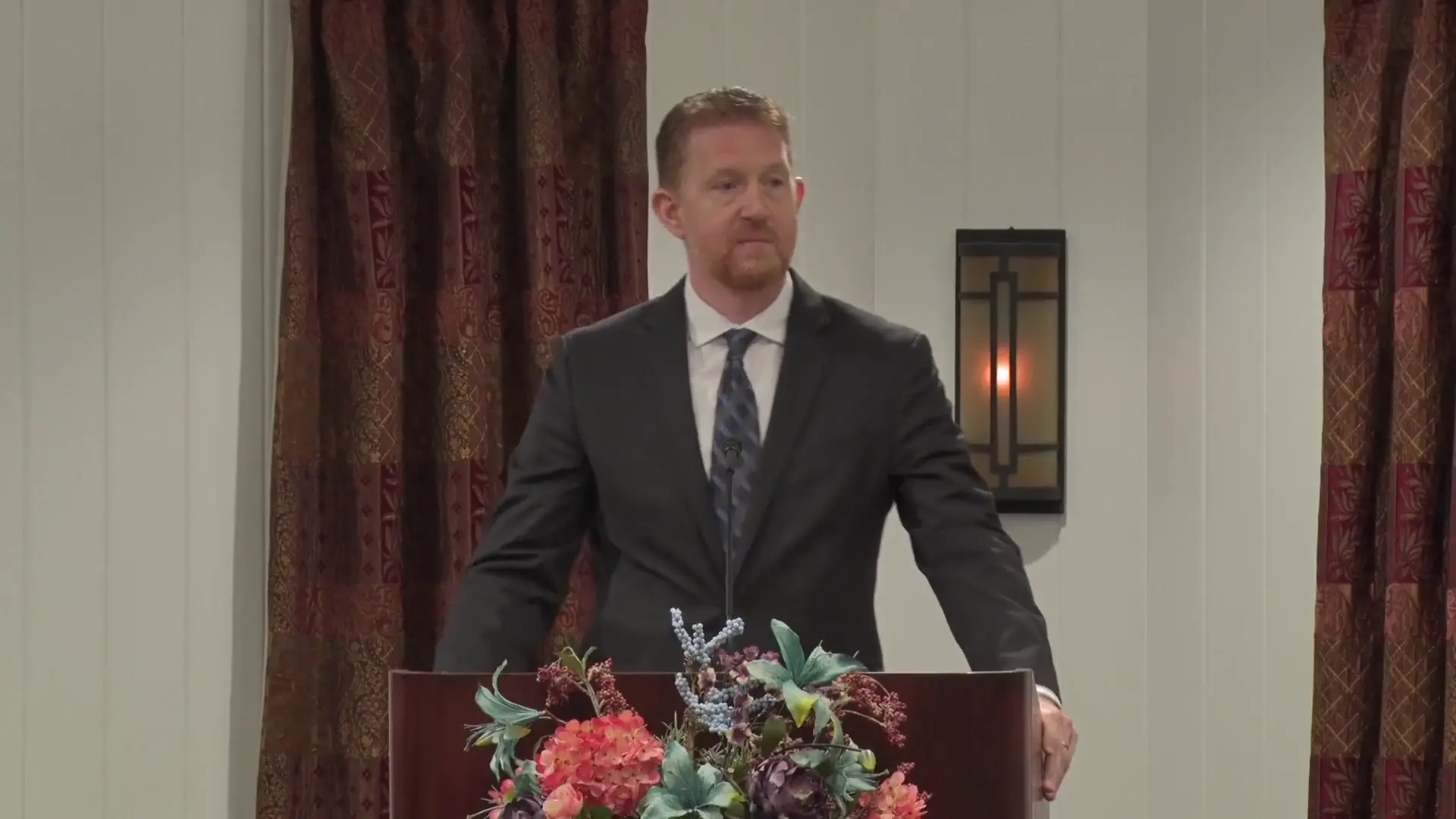Filter by Categories
God's Law Is Eternal
Sermon by Martin G. CollinsGod's law is a permanent, perpetual, and eternal guide for moral and spiritual conduct, expressing His expectations for Israel and the church. It is intended for human benefit, providing a reliable path for living and illuminating understanding. Jesus Christ affirmed the enduring nature of this law, declaring that not even the smallest part would pass away until all is fulfilled, as seen in Matthew 5:18. He did not come to abolish the law but to explain and embody it, showing how it must be kept in both letter and spirit. Central to this understanding is the concept of love as the fulfillment of God's law. Jesus taught that the essence of the Ten Commandments is summed up in two great principles: loving God with all one's heart, mind, body, and strength, and loving one's neighbor as oneself. These two commands encompass the entirety of the law, reflecting its depth and breadth. Loving God fulfills the first tablet of the commandments, while loving one's neighbor fulfills the second. This is not a moderation or relaxation of the law to accommodate human weakness, but a revelation of its profound spiritual character and perfection. Christ's life exemplified this perfect obedience to God's law, embodying love and reverence for God and respect for others. He demonstrated that true fulfillment of the law is not in adhering to humanly devised rules, but in living out positive love and mercy. Through His teachings and actions, He showed that the law's ultimate aim is to mold lives on these eternal principles, which will never pass away. By faith in Him, believers receive the strength to internalize and live by these commands, striving toward the goal of having God's law become second nature, as it was for Christ.
Love God, Love Neighbor
Sermon by Richard T. RitenbaughAs God's called-out ones, we should have a far more mature understanding of real love, which is God's love. There is a vital, unbreakable connection between love for God and love for neighbor; they are not separate but closely interconnected. This connection explains why the world's shallow concept of love fails—they omit love for God, focusing only on love for neighbor, if at all. When we disconnect love for God from love for each other, both suffer. The apostle John emphasizes that loving God, loving our neighbor, and keeping the commandments are facets of the same principle. If we love God, we will love our neighbor and keep the commandments. If we love our neighbor, we show love to God and fulfill the commandments. If we keep the commandments, we prove our love for God and our neighbor. These are inseparable, working together as foundational tenets of God's way of life. Jesus Himself taught that the law and the prophets hang on love toward God and love toward neighbor, with every commandment reflecting one or the other. Jesus also equates the love we show our neighbors, even our enemies, with the love of God, urging us to imitate God's impartial love for all. He admonishes us to become perfect as God is perfect, indicating that progress toward spiritual perfection comes through selfless, outgoing concern for others. The love we show our brethren serves as a gauge of our love for God; if we love our brethren, we love Christ. Practicing real godly love for our brethren—through actions like feeding, clothing, visiting, and helping—manifests the depth of our love for God, visible to all and noticed by Him, even if done in secret. Perfection in God's love is achieved by showing love for one another. If we love one another, His love is perfected in us. To reflect the perfect character of the Father and Christ, we must practice and perfect loving our brethren, starting with those closest to us, as this is how God gauges our love for Him in preparation for entering His Kingdom.
Love Thy Neighbor (Part 2)
Sermon by John W. Ritenbaugh (1932-2023)He who loves God must love his brother, including every fellow human being. Our closeness with God transcends the other human relationships.
By This We Know Love!
Sermon by Martin G. CollinsAs God's people keep God's law in its spiritual intent, they begin to think like the Father and His Son, both of whom habitually do good.
The Law's Purpose and Intent
Sermon by Martin G. CollinsThe effectiveness of a law is found in its purpose and intent rather than the letter. Love and mercy constitute the spiritual fulfillment of the Law.

The Fruit of the Spirit: Love
'Personal' from John W. RitenbaughLove is the first fruit of the Spirit, the one trait of God that exemplifies His character. The Bible defines love as both what it is and what it does.
Love's Importance and Source
Sermon by John W. RitenbaughGod is the source of real love; mankind by nature does not have it. It is only by knowing God that we can have this love. Godly love is a cycle that God initiates.
Is Jesus Christ a Christian?
Sermonette by Craig SablichJesus would not align with the vast majority of doctrines taught in the major branches of Christianity. Here's why.

Does Jesus Recognize Today's Christianity?
'Ready Answer' by Craig SablichModern-day Christianity is a patchwork quilt of doctrines and practices. Does Jesus recognize it as the church He founded? Does it follow His teachings?
Repentance and Righteousness (Part 2)
Sermon by Richard T. RitenbaughMechanically keeping the law is only the beginning of righteousness. By emphasizing principle, Christ came to magnify, not to destroy God's law.

The Third Tithe Blessing
Sermon by David C. GrabbeGod's people were obligated to declare before God that they had faithfully distributed the tithe. The blessing was applied nationally.
Strategies for Escaping Babylon (Part Six)
Sermon by David F. MaasAll the New Testament writers warned about false prophets trying to sever the symbiotic relationship between law and grace, law and faith, law and works.
Debt and Obligation
Sermon by John W. RitenbaughWe live in a time when people have acquired a weak sense of obligation to family, society, or nation. Because sin cannot be undone, all are debtors to God.
What Do You Mean . . . the Unpardonable Sin?
Herbert W. Armstrong BookletCan a Christian commit a sin, and still be a Christian? Or would this be 'the unpardonable sin'? Or would it prove he never was a Christian?
Many Are Called, But Few Are Chosen (Part Five)
Sermon by Martin G. CollinsWe must avoid forgetting the connection between past and present, especially as our forebears had to battle outer and inner enemies of God's truth.
The Essence of Self-Control
Sermon by Martin G. CollinsA lack of self-control, as well as the cultivation of self-indulgent perversions, will characterize large segments of our society living at the end times.
How to Be an Overcomer
Herbert W. Armstrong BookletWHY are we not more successful in living up to God's standard? WHY do we slip and fall at times? Here is how YOU can overcome where you are hardest tempted!